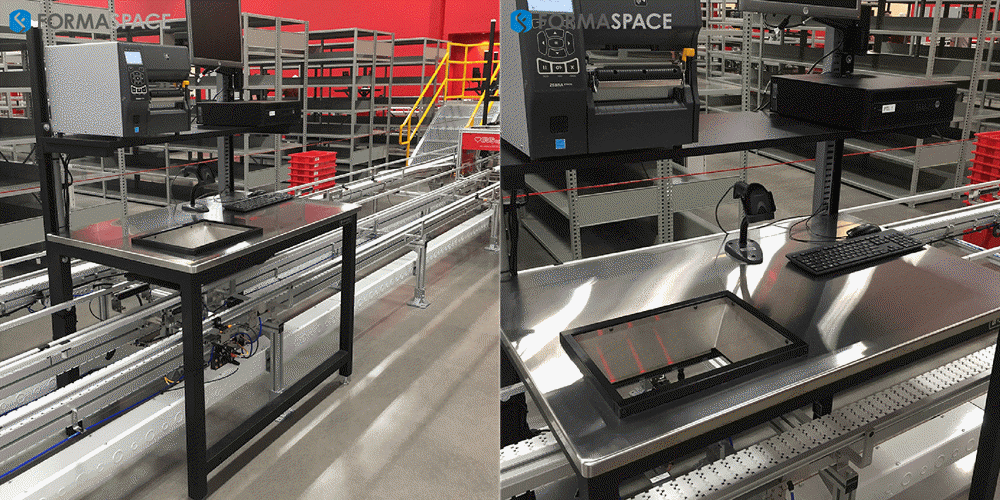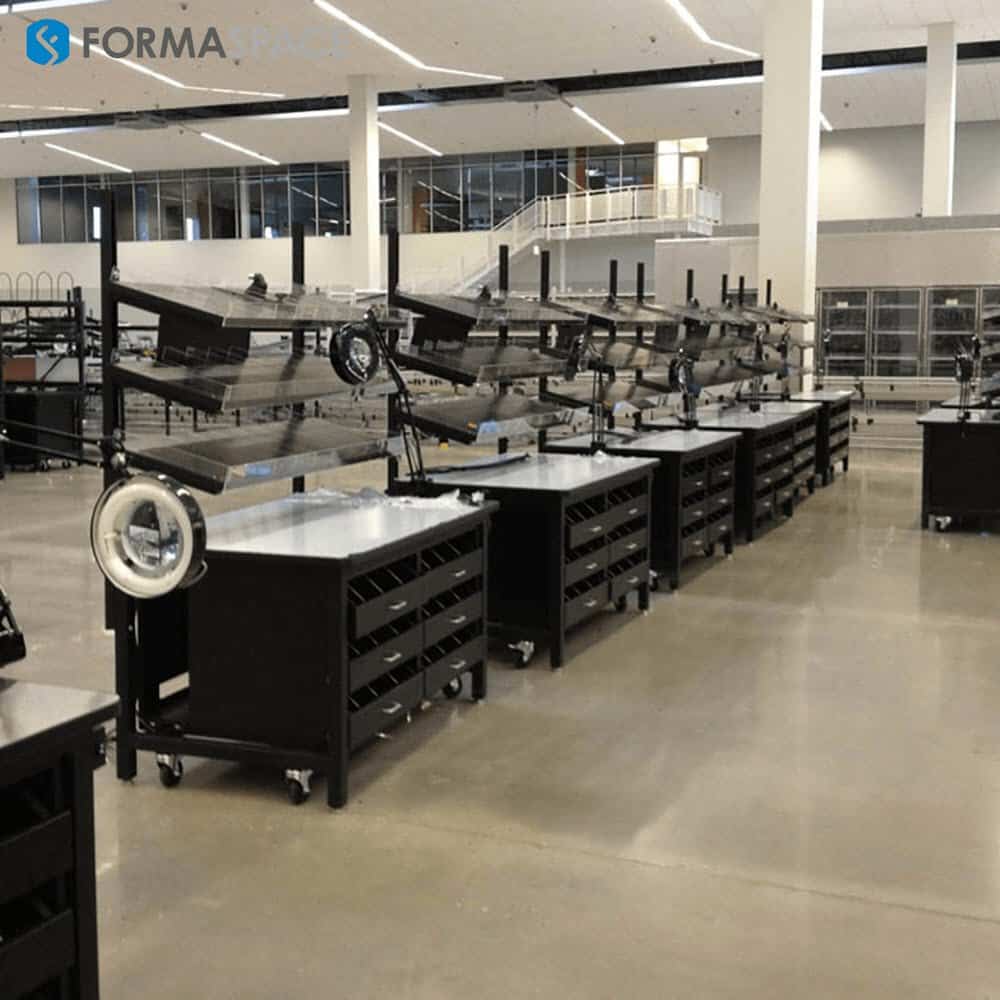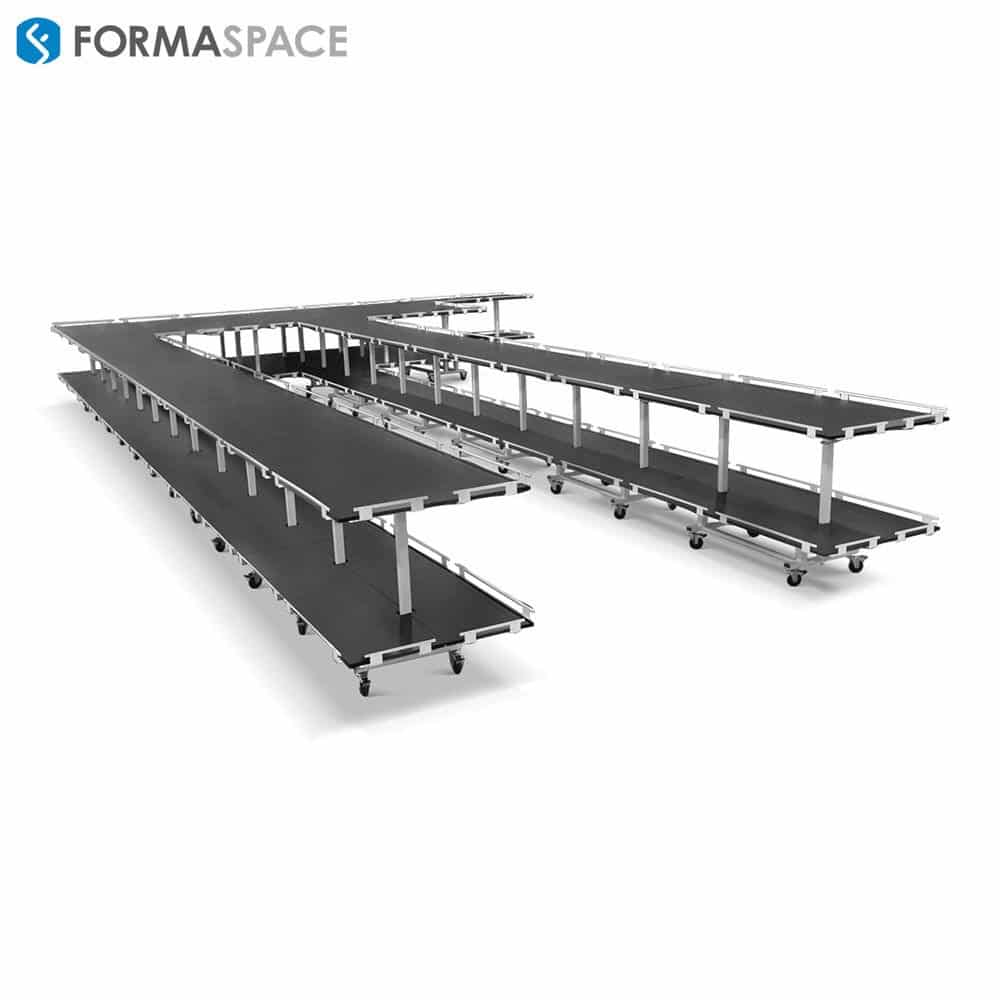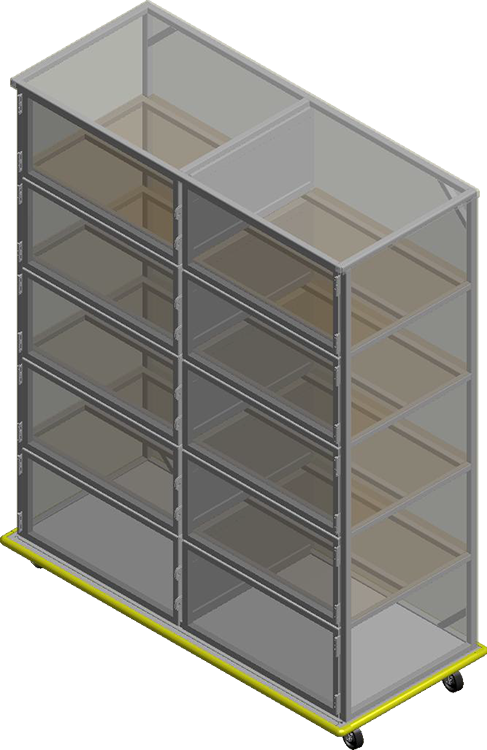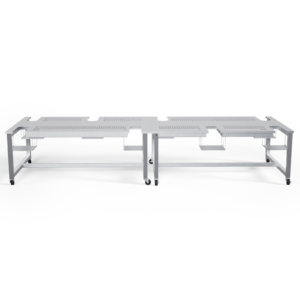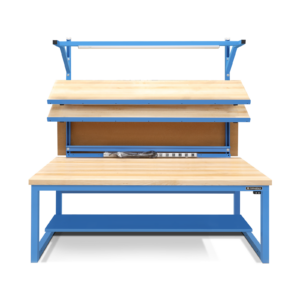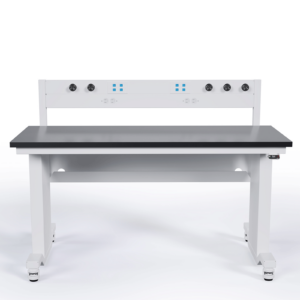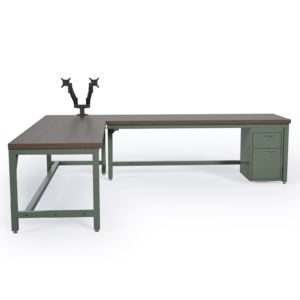Changing consumer demand is causing the pharmaceutical industry to reinvent its traditional approach to logistics to keep up with the faster pace of e-commerce. We take a look at the underlying reasons for these changes and how the Pharma industry is responding with solutions to make their material handling faster, more efficient, and more accurate than ever before.
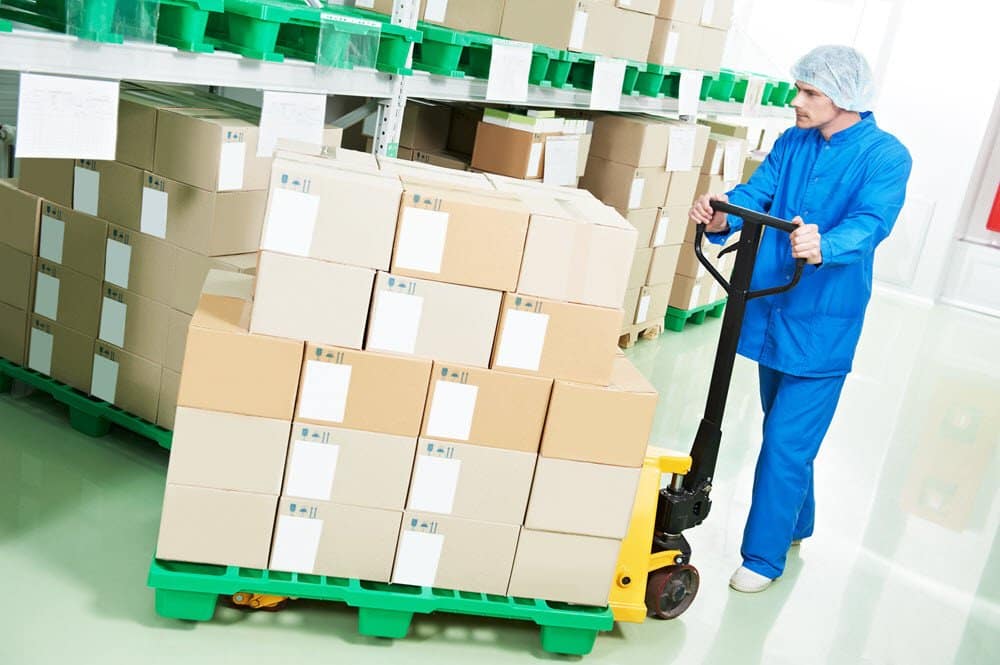
E-Commerce is Setting Consumer Expectations for Pharma Purchases
The pharmaceutical industry is facing a new set of challenges. On the one hand, e-commerce has taught consumers to expect fast overnight product delivery to their doorstep – yet legacy pharmaceutical distribution center infrastructure makes it difficult to meet the growing demand for direct-to-consumer sales. Meanwhile, the new Federally-mandated DCSA track and trace regulations have increased pressure on pharmaceutical automation systems that weren’t designed to track individual doses throughout the supply chain.
How extensive are the challenges facing the pharma industry?
Here are just a few of the challenges that make it more difficult for pharma companies to compete head-to-head with e-commerce companies in other market sectors:
- Need for 100% Accuracy in Product Manufacturing, Packaging, Delivery, and Dosage. Unlike other industries, errors in the pharmaceutical industry – from manufacturing mistakes to mislabeled packaging – can be a matter of life and death.
- Perishable / Quick Expiry Products, including Refrigerated Goods. Similar to the wine and greengrocery industry, pharmaceutical products may require climate-controlled handling and storage and must be used prior to their expiration date.
- High-Value or Restricted Drugs Require Enhanced Security during Shipping and Warehousing. The Federal Controlled Substances Act (CSA) classifies drugs into Schedules I through to IV based on the risk of abuse or harm; as a result, many products require secure handling procedures to comply with the law as well as to prevent theft or misuse.
- Ensuring Privacy for Protected Health Information under HIPPA. The Health Insurance Portability and Accountability Act (HIPAA) privacy rules add another layer of complexity for direct-to-consumer sales. For example, patients need to provide consent to any third-party before sharing their protected health information.
- Online Sales and Advertising Restrictions Targeted at Illicit Drug Sales. In addition to the laws and regulations that seek to prevent false advertising claims or illicit online drug sales, legitimate pharmaceutical marketers must also comply with restrictions set forth by companies such as Google, who seek to prevent illicit product sales through their search engine advertising and e-commerce tools.
- End-To-End Pharmaceutical Product Tracking and Tracing under DSCSA. The Drug Supply Chain Security Act (DSCSA) mandates that the pharmaceutical industry implement methods track and trace its products throughout the supply chain – from the raw ingredients all the way to the final products delivered to the consumer, including the ability to recall specific production lots if necessary.
Race to a New Logistics Future for the Pharma Industry: Who Will Get There First?
Many of today’s pharmaceutical companies have to reinvent themselves. For example, some need to quickly replace their older ERP systems to create efficient DCSA tracking processes or they may need to revamp high-cost distribution centers that weren’t designed to service direct-to-consumer sales.
Industry analysts are also looking at the possibility of new entrants to the market. Last year’s announcements by famed investor Warren Buffett (of Berkshire Hathaway fame), Jeff Bezos (owner of Amazon.com), and the investment bank J.P. Morgan caught everyone’s attention when they announced a new healthcare initiative for their combined 1,000,000+ employees.
More worrying for the pharma market was Amazon’s acquisition of PillPack in June of 2018. PillPack is targeting the direct to consumer sector of the market that will bypass neighborhood pharmacies by delivering medications directly to consumers as needed.
Pharmacy giant CVS is not standing by. In addition to its planned merger with health insurance company Aetna, CVS announced same-day home delivery in June 2018 for prescription and some over-the-counter medicines in New York City, with expansion plans for Boston, Philadelphia, Washington DC, Miami, and San Francisco.
By laying the groundwork for direct-to-consumer sales today, the pharmaceutical industry is also paving the way for future blockbuster drug categories, in which industry experts believe that individual doses of medicine will be customized for each individual’s own genetic makeup.
Creating a Leaner Pharma Supply Chain with Solutions from Formaspace
Are you looking for ways to make your pharmaceutical material handling faster, more efficient, and more accurate than ever before?
It’s time to talk to Formaspace.
We have extensive experience in creating custom manufacturing solutions for many of the top pharmaceutical companies – as well as other major international manufacturing firms. In fact, three out of four of our customers are listed on the Fortune 500.
Here are a few ideas to think about:
Increase the Efficiency of Your Pharmaceutical Distribution Centers
If you are contemplating building a new distribution center or performing a major revamp of your existing warehousing and shipping facility, Formaspace can help.
One of the first crucial steps is to undertake a Rapid Plant Assessment.
When you invite Formaspace experts to visit your facility, they will see your workflow with fresh eyes. Using time-tested principles from lean manufacturing, 5S, and Six Sigma, Formaspace personnel will help you identify specific ways to increase the efficiency of your existing manufacturing and material handling systems. They can also identify specific changes, such as new integrated picking stations, that could deliver a significant return on investment in a short amount of time by reducing or eliminating production bottlenecks.
Here are two examples of Formaspace manufacturing solutions that solved specific problems that were slowing down material handling:
The first example is an integrated weighing station that’s integrated into the production workflow. This stainless-steel design, which features easily accessible storage and a sturdy mount for computers and monitors, allow this pharma company to weigh products quickly without slowing down the line.
Our second example is from a pharmaceutical distribution center. These custom packing tables, made by Formaspace at our factory headquarters in Austin, Texas, feature ergonomic height-adjustable worksurfaces. These not only provide a more comfortable work environment for different-sized individuals, but they also allow workers to vary their standing and seating positions throughout the day to improve circulation and reduce back injuries.
Redesigning Pharmaceutical Distribution Centers for Faster Product Handling
Formaspace not only has the manufacturing knowledge and fabrication skills to help you build custom solutions that solve specific problems, but we can also help you with transformative changes in your material handling processes as well.
Understandably, most of our client projects in this category are confidential, but in broad general terms, we are often called upon to help build custom, proprietary manufacturing line and distribution center installations that integrate the latest advanced robotics with material handling systems.
The above image illustrates a proprietary, patented “robot roadway” built by Formaspace that allows robot pickers to travel across the warehouse at different levels, maximizing the available floor space.
Creating Custom Solutions that Support Direct-to-Consumer Sales
Most existing pharmaceutical logistics systems weren’t designed with Direct-to-Consumer distribution in mind.
As a result, many companies are looking to make significant changes, from building brand-new pharmaceutical distribution centers to leveraging hospital systems or retail outlets as delivery platforms.
In all these cases, one of the major challenges is how to provide more secure product storage using less space.
This is exactly the type of challenge that we like at Formaspace.
We created a solution for material handling, bag fabrication, and filling process at one of the largest pharmaceutical companies in Texas.
The first breakthrough was a custom mobile cart solution with lockable, clear polycarbonate doors. These provided a secure, visible chain of custody for each specific product – from the clean room to the packing areas.
The second breakthrough was a custom mobile racking system that used 90% less storage space than traditional systems, which means there was no need to invest in a larger warehouse.
The company reports it has saved at least $1 million a year with the Formaspace system.
Formaspace is Your Pharmaceutical Distribution Center Partner
If any of these ideas sound interesting to you, we’d love to speak with you about how we might work together to make your pharmaceutical automation, warehousing, and distribution operations more efficient.
Remember, if you can imagine it, we can build it – here at our factory headquarters in Austin, Texas.
Formaspace serves the leading companies in the pharmaceutical, health sciences, laboratory research, manufacturing, aerospace, oil and gas, education, and government/military markets. Over 75% of our customer sales go to companies listed on the Fortune 500, and we count over 300 colleges and universities as clients as well, including most of the Ivy League institutions.
Why not contact us today? Find out how Formaspace can help. Our Design Consultants are just a phone call away.

